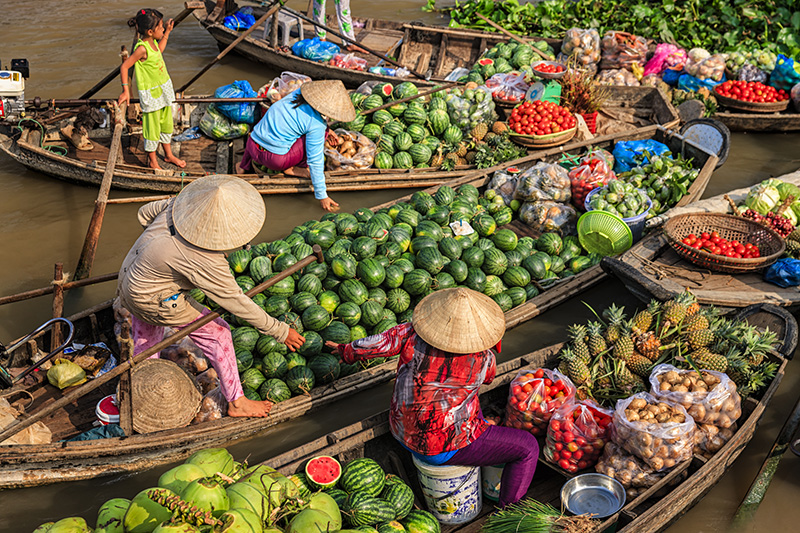
Vaccinations for Vietnam
There are no compulsory vaccinations for Vietnam required by law for travellers from Western Europe to gain entry but certain vaccinations are strongly recommended.
Vaccinations for Vietnam
02:40 Wed 23rd Apr, 2025All Travellers
Tetanus
Tetanus is contracted through contaminated cuts, bites and breaks in the skin. The vaccination provides cover for approximately 10 years in the majority of patients. It is frequently combined with cover against other diseases such as Poliomyelitis, Diphtheria and/or Pertussis.
Hepatitis A
Hepatitis A is a common disease in many of the hotter regions of the world and usually contracted through contaminated food and water. Cover against Hepatitis A can be given alone or combined with protection against Hepatitis B. Once completed, the Hepatitis A vaccination (given on two occasions 6 to 12 months apart) provides cover for approximately 25 years in the majority of patients.
Typhoid
Typhoid is a bacterial disease contracted through contaminated food and water. Once completed, the Typhoid vaccination given on one occasion provides cover for between 2 to 3 years in the majority of patients
Optional
Hepatitis B
Hepatitis B is a viral disease which is usually transmitted in a very similar fashion to HIV/AIDS through contact with infected body fluids (eg blood exposure and sexually). This vaccine can be combined with cover against Hepatitis A. The standard schedule for Hepatitis B is to administer the vaccine on days 0, 28 and 180. A more rapid schedule can be used in cases where cover is needed more urgently and this is administered on days 0, 7, 21 to 28 and also 365. Following either course (and not before completion) a blood test can be taken to confirm sufficient antibody protection. Where the correct level of antibodies are showing (>10iu) the vaccination is recognised to provide cover for life.
Rabies
Rabies is a viral disease which is usually transmitted through the bite, the lick or the scratch of any infected warm blooded animal. As per the current WHO guidance, the vaccine is usually administered on days 0 and between 7 and 28. Once a course is completed, the vaccination provides life long ‘immune memory’ in the majority of patients BUT after any possible exposure the individual always needs further vaccination to boost antibody production
Meningococcal Meningitis
Meningococcal Meningitis is a bacterial disease which is usually transmitted through the respiratory route. The vaccine is given on one occasion and provides cover against four of the main forms of this disease. Once a course is completed the vaccination provides for over 10 years in the majority of patients.
Cholera
Cholera / E coli are both food / water borne diseases. This oral vaccine is given on two occasions between 1 to 6 weeks apart before travel. The second dose (frequently given one week after the initial one) should be administered 7 days before potential exposure. Once completed the cover against Cholera is expected to be for about 2 years. The cover against E coli is shorter and thought to be effective for between 3 to 4 months. In travellers who have completed an initial primary course within the past 2 years a single further dose is sufficient to maintain this cover.
Japanese Encephalitis
Japanese Encephalitis is a viral disease transmitted through the bite of an infected mosquito. The vaccine is given on two occasions one month apart with a third dose at 12 months. Once completed the vaccine is thought to provide cover for between 2 to 3 years but possibly longer.
